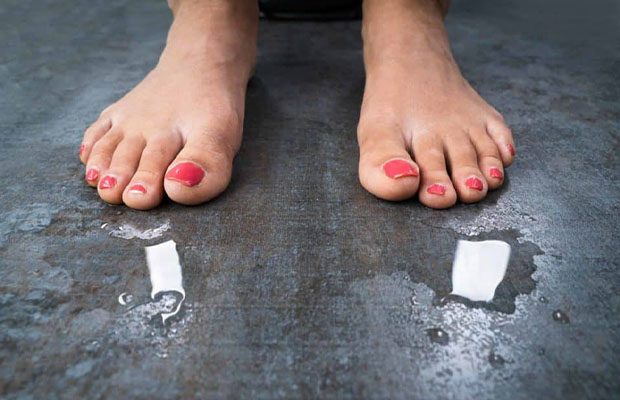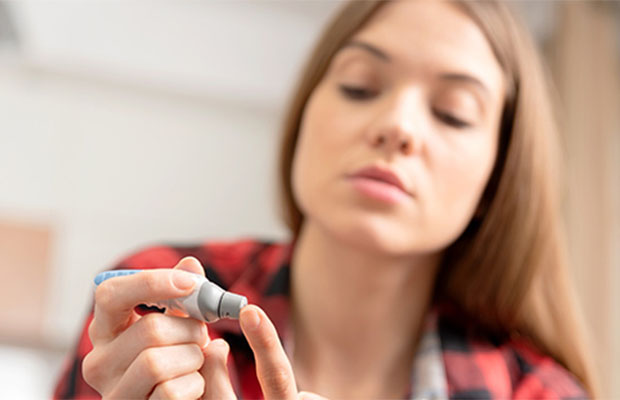What Causes Cold Sweats? How to Treat?

People often ask: what causes cold sweats?
Unlike the majority of sweats, cold sweats aren’t brought on by either heat or exerting your body. They’re actually caused by our body’s ‘fight or flight’ response, which is designed to protect us in dangerous situations.
Our breathing and heart rate naturally quicken when we feel nervous, anxious, or threatened, putting our bodies into “overdrive.” That then activates our sweat glands to keep us cool.
In this article, we will look at cold sweats’ causes, symptoms, and treatment options.
Table of Contents
What Are the Possible Causes of Cold Sweats?
The potential causes listed below are some that you ought to consider.
Fever
Your body temperature rises as a defense mechanism against any virus or infection, from the flu to chickenpox. And as a result, other body parts may start to perspire coldly.
Low Blood Sugar
Your doctor will have made you very aware of this if you have been diagnosed with diabetes. One of the early signs of hypoglycemia, which necessitates urgent medical care, is a cold sweat. After a night of heavy drinking, low blood sugar, which is far less serious, can also cause “the sweats.”

Thyroid Problems
When your thyroid gland overworks and makes too much of the hormone thyroxine, you have hyperthyroidism. Your body reacts by going into “fight or flight” mode, which causes your metabolism to speed up and causes symptoms like anxiety, trembling hands, and cold sweats.
Some Types of Cancer
Particularly lymphoma, leukemia, bone cancer, carcinoid tumors, and liver cancer are among the cancers that can cause cold sweats or the cancer treatments themselves.
Anxiety
You’re much more likely to get cold sweats if you have issues with PTSD triggers or anxiety attacks.
Medication
Check the side effects of any medications you are taking because they may occasionally cause cold sweats. These consist of a few painkillers, blood pressure and heart medications, chemotherapy, hormonal treatments, anything that affects the endocrine system, and a few antibiotics.
Symptoms
The fight or flight response helped prehistoric humans survive in a more physically hazardous environment by preparing the body to either engage an enemy in combat or flee. Although it still exists in modern humans, the fight or flight response is more likely to be triggered by a traffic jam than by a saber-toothed tiger.
The physical responses sparked by the stress response include:
- Faster heart beat
- More rapid and shallow breathing
- Reduced blood flow to the digestive system, leading to less saliva and a dry mouth
- The release of endorphins
- The opening of sweat glands
Regular sweats do not result from the body’s cooling response, whereas cold sweats do. As a result, those who are cold sweating may have clammy, cool skin and may also feel chilly. The skin may occasionally seem quite pale.
Treatment Options
Whatever is causing your cold sweats will need to be treated. You can avoid becoming dehydrated by consuming lots of water throughout the day. Cold sweats can be avoided by engaging in regular exercise and avoiding vices like excessive alcohol consumption and smoking.
Breathing deeply may be able to help your body recover when your blood’s oxygen supply is low. You can regain control of your breathing by using relaxation techniques like meditation. These positions can help direct practice at all levels, but you can meditate anywhere.
Underlying conditions can be managed with medications, including:
- Prescription antiperspirants
- Nerve blockers that stop your nerves from telling your brain to induce sweating
- Antidepressants
- Botox injections, which can also block nerves that tell your brain to induce sweating
When to See Your Doctor
Emergency medical care is required to stop any long-term damage if your body experiences shock, becomes infected, or sustains serious injuries. If you believe you are having a heart attack, you should also seek immediate medical attention.
You should also see your doctor if you:
- Have bluish discoloration of your nails or lips
- Feel tightness in your throat
- Feel significantly less alert than usual
- Throw up blood or pass blood when you have a bowel movement
Your doctor can work with you to create a symptom management strategy if the underlying cause of your cold sweats is a condition like anxiety or menopause. Your best source for additional details on what to anticipate and how to handle any symptoms you may be feeling is them.
Read More: Toenail Falling Off
Tags: Cold Sweats